【TNF Journal】Business’s New Relationship with Disabilities (Part 6)Ambitions and Aspirations of Individuals Create a Colorful World The Inclusive Society Dentsu is Aiming For
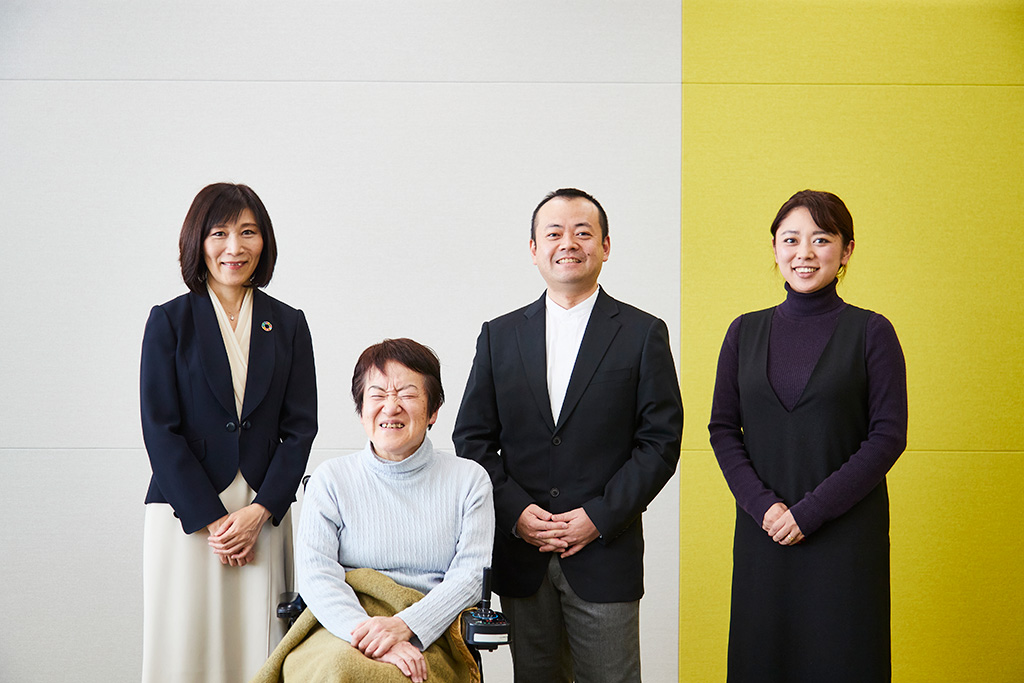
Key Points in this Article
- Diversity is the starting point of innovation that moves society
- At Dentsu, the ambitions and interests of employees spawn diverse projects including the Dentsu Diversity Lab
- The goal is to create a society that lets people “be themselves,” free of one-sided labels of gender, disabilities, nationality, etc.
Reporting: The Nippon Foundation Journal Editing Department
Focusing on the employment of people with disabilities at companies and the development of products and services for people with disabilities, we will introduce some outstanding initiatives in this series. We would like our readers to join us in considering what kind of viewpoints and ideas are necessary for creating an inclusive society* where everyone can participate irrespective of whether or not they have disabilities.
- * A society in which the existence of each and every individual is valued, regardless of race, gender, nationality, social status or disability.
In charge of reporting are members of the Working Group*1 formed by The Nippon Foundation to accelerate the social participation of persons with disabilities. In this Part 6 of the series, we introduce initiatives of the Dentsu Diversity Lab (a new window opens) launched in 2011 by Dentsu Inc. (a new window opens), a leader of Japan’s advertising world, as a research organization that focuses on the areas of diversity and inclusion*2.
- *1A group formed to research and formulate plans for specific issues.
- *2Creation of a society where everyone can play an active role by mutually respecting and acknowledging diversity such as race, gender, age, and the presence or absence of disabilities.
For this article, we interviewed Ms. Chieko Ohuchi, Executive Officer at Dentsu, Mr. Takahiro Hayashi, Strategic Unit Leader of the Dentsu Diversity Lab, and Ms. Erina Hanzawa, the Editor in Chief of “cococolor” (a new window opens), an e-magazine centered on “diversity” launched as an initiative of the Dentsu Diversity Lab.
Diversity is the starting point of innovation
Okuhira: I am Masako Okuhira of The Nippon Foundation Working Group. To begin, please tell us about Dentsu’s initiatives in diversity and inclusion.
Ms. Ohuchi: At Dentsu, we have many teams and staff involved in diversity and inclusion research and its social implementation. We also have the Dentsu Diversity Lab, which was established as a research organization for solving problems companies encounter in promoting diversity and inclusion and for developing solutions. However, the launch of the lab was actually the result of efforts of interested staff rather than a request from the company. The staff themselves, who were observant and had an awareness of issues, took it upon themselves to gather like-minded colleagues and initiate a project, and the company gave them its support.
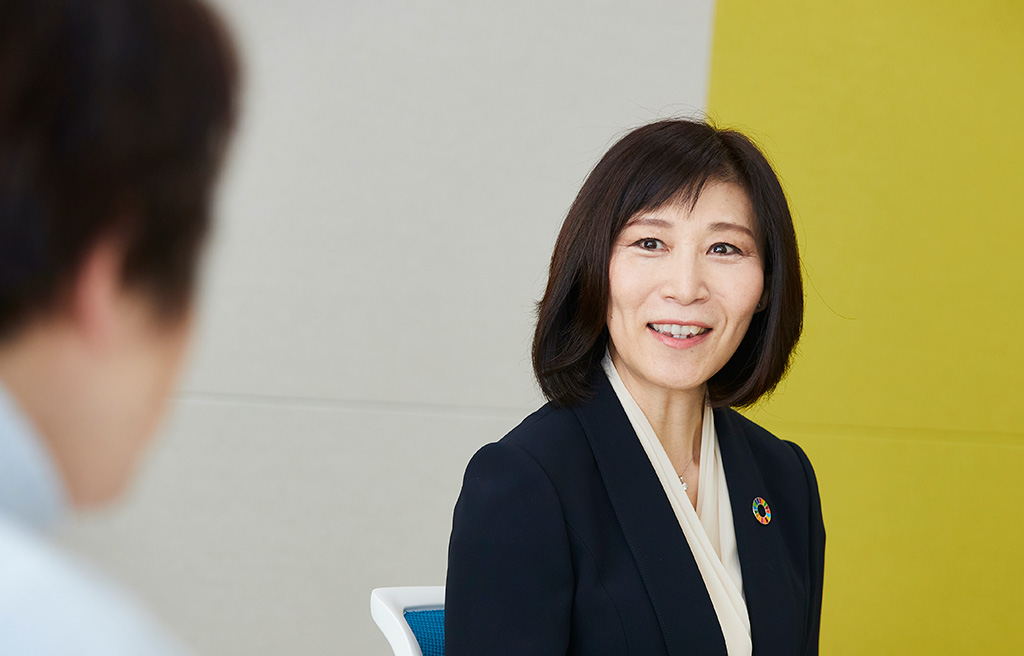
Okuhira: I see. So the project came from ideas of people in the workplace?
Ms. Ohuchi: That is correct. Valuing autonomy and motivation in the workplace is also a part of Dentsu’s corporate culture. Part of our work also involves receiving requests for consultation from clients in the promotion of diversity and inclusion. In fact, the design of this floor you are now on also incorporates some concepts of diversity and inclusion.

Okuhira: What other activities do you engage in?
Ms. Ohuchi: We undertake various initiatives jointly with client companies, including conducting LGBT* research, thinking about how to get involved in LGBT and disabilities issues, and engaging in product development focusing on one single person. In addition to activities of the Dentsu Diversity Lab, staff engage in a variety of initiatives such as “dark experience training” that enables people to experience what it’s like to be in the position of someone with a visual impairment, and some staff are also involved in the development of a type of Braille that can be read by persons with sight as well as persons without sight.
- * Acronym for lesbian, gay, bisexual, transgender
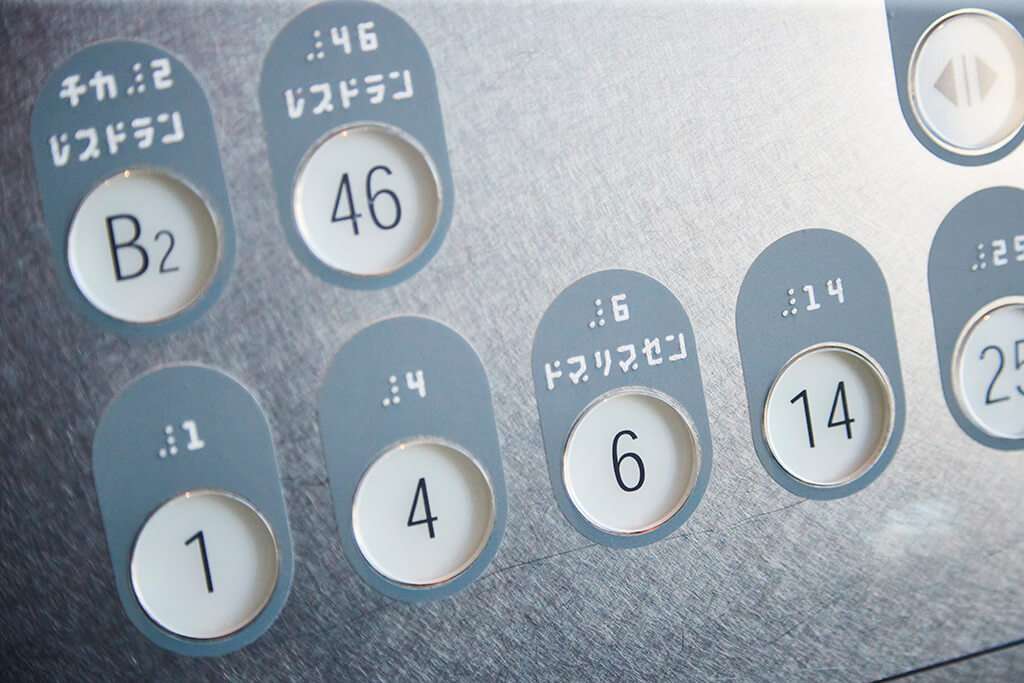
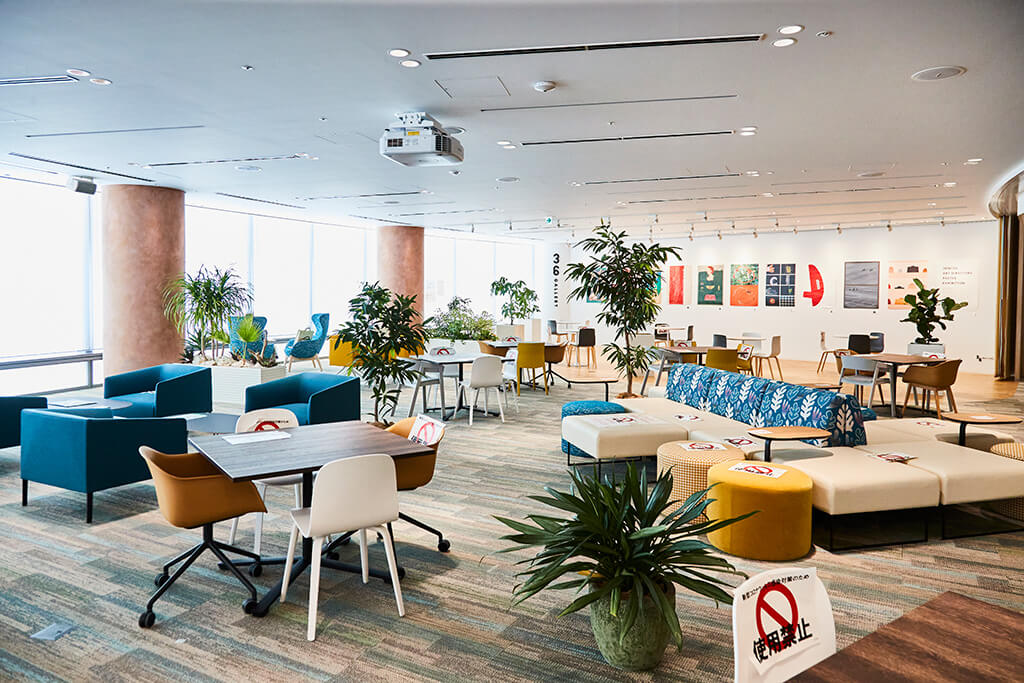
Okuhira: These are all very interesting initiatives. What do you think prompts staff to want to initiate projects and what is the reason so many projects are launched?
Ms. Ohuchi: At Dentsu, we believe that diversity is the starting point of innovation. Another reason may be that we value “dialogue.”
Okuhira: Dialogue?
Ms. Ohuchi: That is correct. Topics and ideas generally do not emerge just by sitting down alone at our desks. More often they come to mind while we are walking in the city or engaging in a conversation with someone. Of course we engage in “dialogue” with clients, but we also have the Solari Cafe, an in-house cafe operated by Dentsu’s special subsidiary Dentsu Solari (opens a new window) as a venue for holding talks. I personally feel that I become tuned in to many ideas in the course of such communication.
Okuhira: I see. You find solutions to issues that you become aware of through dialogue.
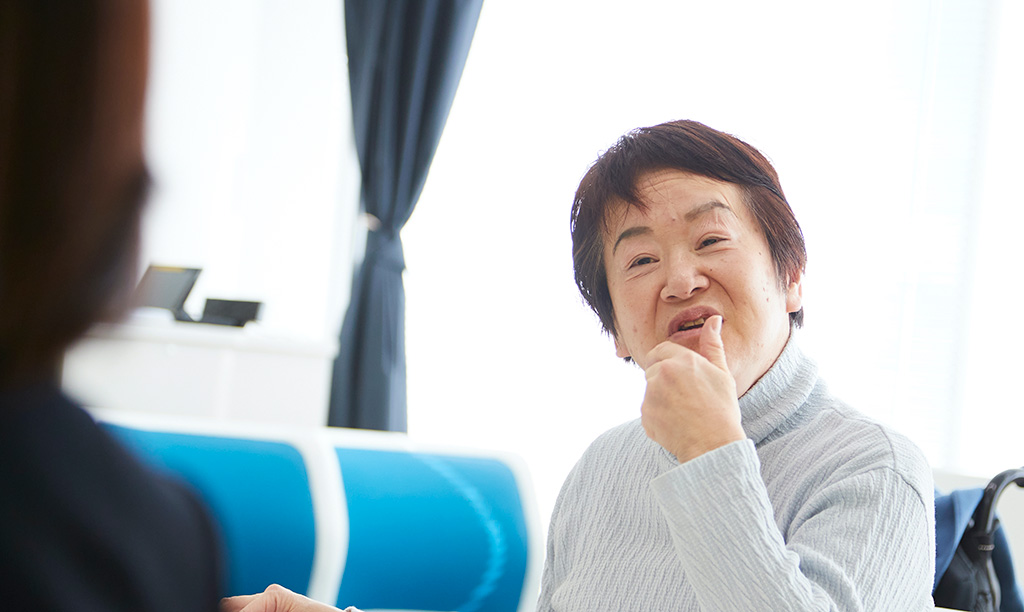
Ms. Ohuchi: That’s right. This is the importance of deepening one-on-one relationships. I feel that by focusing on the person in front of us and solving problems and making that person happy, we can create services and businesses that will have an impact on many people. If we interact in society in that way, don’t you think society will change?
Okuhira: I agree with you. This is a perhaps a probing question but what about budgets for projects such as Dentsu Diversity Lab?
Ms. Ohuchi: The minimum budget for projects such as creating websites, for example, comes from the company. There are also cases where we collaborate with client companies and other companies.
The term CSR* has various meanings depending on the company. There seems to be an understanding among some that CSR should be entirely philanthropic and that people shouldn’t profit from this area, but the fundamental principle of business is that an enterprise provides value to society and receives compensation in return. We believe that diversity and inclusion initiatives will have a greater social impact and will be sustainable if we link them with the business of companies and involve a large number of people.
- * Abbreviation for corporate social responsibility.
Okuhira: It’s exciting to think that the collaboration of a number of companies will germinate new businesses one after another to improve society.
A research organization of diversity realized through aspirations and ambitions in the workplace
Okuhira: We would now like to hear from Mr. Hayashi and Ms. Hanzawa, who are actually working in the Dentsu Diversity Lab.
Mr. Hayashi: Dentsu Diversity Lab, which is operated by more than 100 staff members across departments, is the company’s largest lab. A notable feature of the lab is the diverse composition of its members, who include not only Dentsu and Dentsu group company employees, but also people from outside the company of varying age, gender and background.
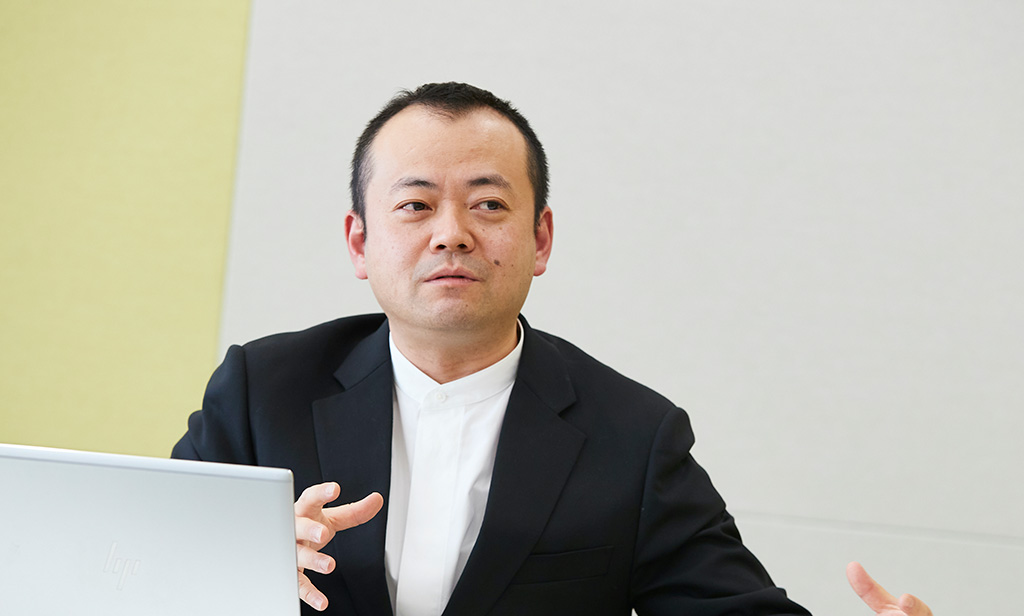
Okuhira: How are the various projects conceived of and how are they managed?
Mr. Hayashi: When a member comes up with what he or she perceives to be an issue, that person will initiate a project by involving people inside and outside Dentsu, who are interested in the same issue. Some projects are for internal purposes and some are for clients. The projects vary widely, and even include Dentsu’s own management reforms.
In addition, the lab also makes use of online facilities for holding regular meetings and making time for exchanging information.
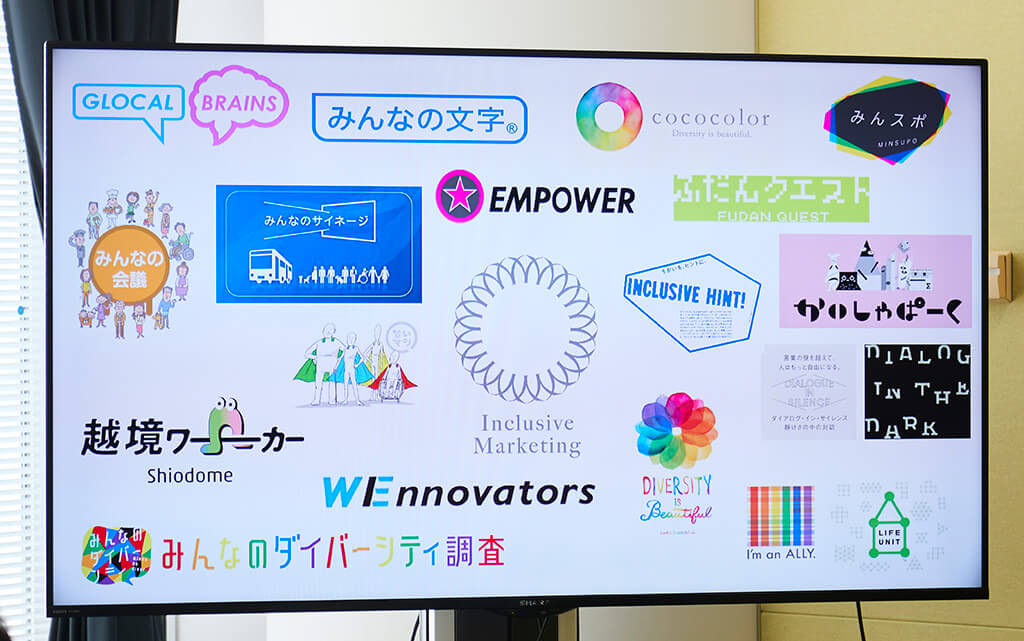
Ms. Hanzawa: Before I knew it, I had also become a member (laughs).
Mr. Hayashi: This “before I knew it” situation seems to be quite a common occurrence (laughs). Since the lab is an organization where members participate while performing their respective work duties assigned by the company, and where ideas for lab activities develop from the motivation of individuals, the person who decides on an idea becomes the producer, irrespective of age or experience. I think that this is a very meaningful experience for young staff who have an interest in social and other issues.
Okuhira: Please tell us about your work for “cococolor,” the e-magazine conceived of at the Dentsu Diversity Lab.
Ms. Hanzawa: I am Erina Hanzawa, the editor in chief. Launched in 2013, “cococolor” initially centered on the two areas of disabilities and LGBT. The concept of diversity is constantly evolving, however, and we are directing efforts to publishing ongoing timely articles that also cover fields such as technology, fashion and the coronavirus.
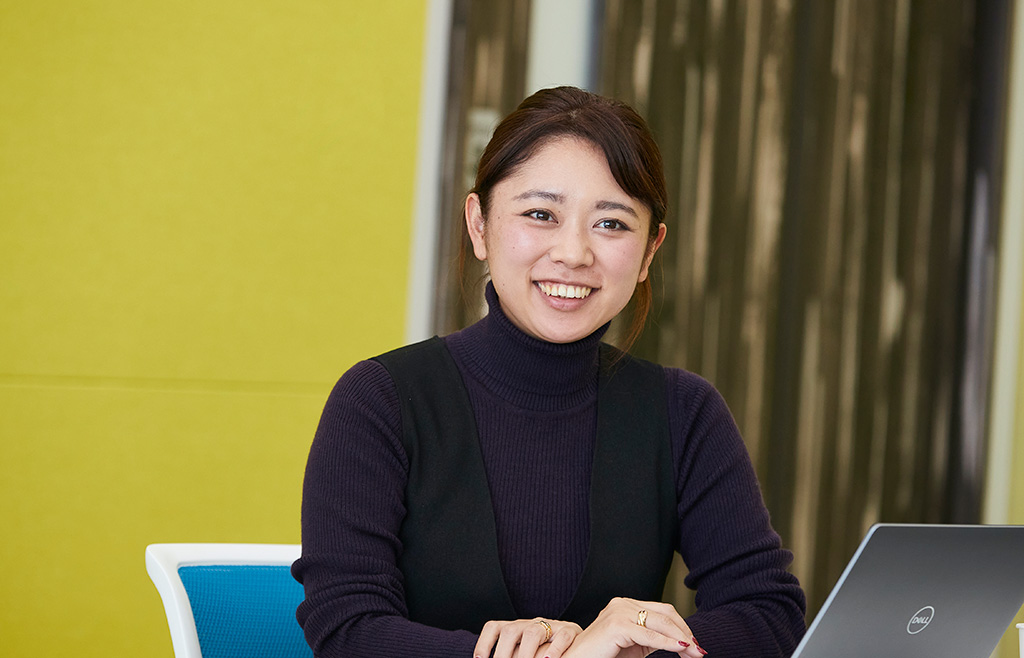
Okuhira: Under what kind of structure does the magazine operate?
Ms. Hanzawa: The staff at the editing department consists of about 70 members from various departments, whose work, ages and areas of activities also vary. Among these are staff who retired from Dentsu as well as clients of Dentsu. We basically do everything ourselves from the planning and structuring of the articles to the writing. Even at meetings it is not unusual for members to come up with one idea after another and enthusiastically, “I want to cover this!”
Okuhira: How do people at Dentsu regard “cococolor”?
Ms. Hanzawa: “cococolor” operates on the notion of what the individuals concerned “want to do,” “want to know,” and “want to tell everyone,” so we are able to face companies purely on that basis outside of the framework of business. We often hear interviewees say that our articles aptly communicate what they wanted to say.
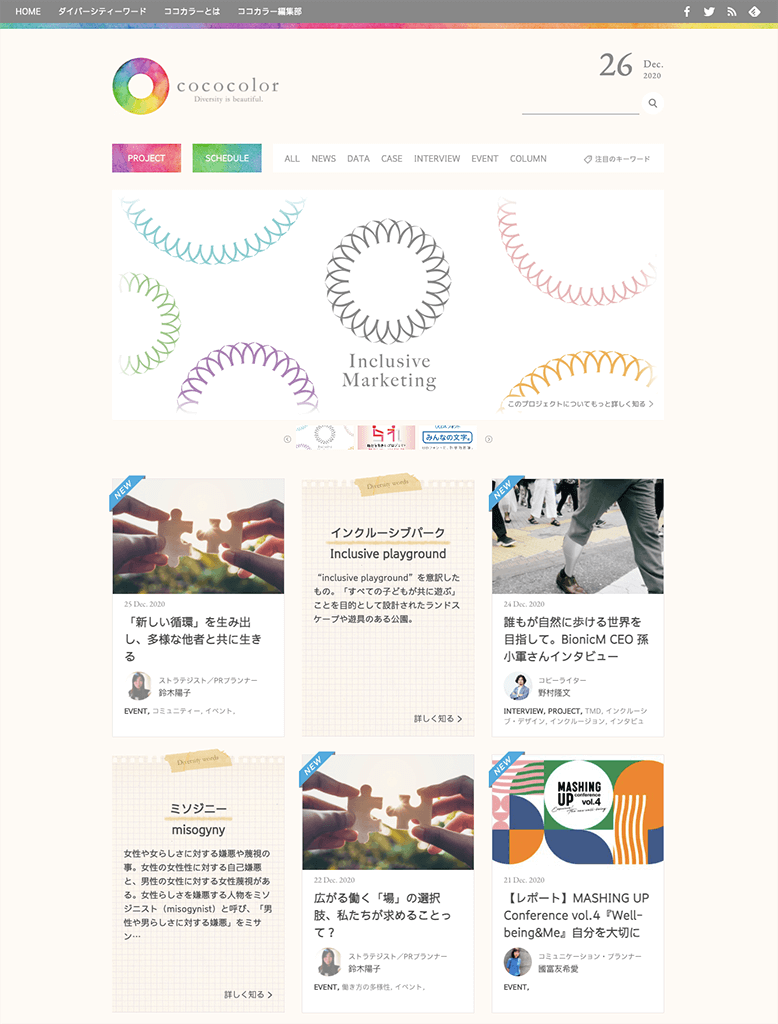
Mr. Hayashi: In that sense, I think “cococolor” as part of Dentsu plays an important role in building relationships of trust with various companies.
Ms. Hanzawa: In addition, the articles in “cococolor” place importance on diversity, and therefore do not aim for uniformity in tone and manner. We also try to present the real name and a photo of the person who wrote the article. I think this is extremely useful in creating individual connections, expanding the breadth of our activities, and creating strengths.
Okuhira: From what you describe, I can imagine the atmosphere of a workplace where everyone is working energetically.
A society without labels that lets people “be themselves”
Okuhira: I also understand that Dentsu has signed on to The Valuable 500 (a new window opens), a global movement that promotes social participation of persons with disabilities in business with the aim of realizing an inclusive society. Can you tell us of the background leading up to Dentsu’s joining?
Ms. Ohuchi: First of all, I believe that by signing we were able to make a commitment both inside and outside the company. We also believe that The Valuable 500 brings together companies with the same purpose. We want to think together, express our concern together, and work together for a better society. I hope that it will be an opportunity for that.
Okuhira: As a final question, please tell us about the society that Dentsu is aiming for through its diversity and inclusion initiatives including the Dentsu Diversity Lab.
Ms. Ohuchi: This may be a bit abstract, but I feel that all of us in one way or another are given various “labels” such as “able-bodied,” “Japanese,” or “woman.” But in reality, these labels are very superficial and do not define us. I believe that we as people are more diverse and complex in the same way, for example, that a person who is a copywriter may also be a musician.

Okuhira: While labels may be convenient in one sense, they do not give an accurate picture of the person.
Ms. Ohuchi: That is correct. Without resorting to labels, we can honestly show the “diverse aspects” of “diverse individuals.” The world that we envision is one where people come together and happily acknowledge and openly show their admiration of the diversity of others with expressions of “wonderful” and “great.” I think the world is beautiful because of the diverse people living in it and the diverse values they have.
Okuhira: Our time here today truly made us think of “diversity” in various ways. Thank you very much.
Photo: Eizaburo Togawa



